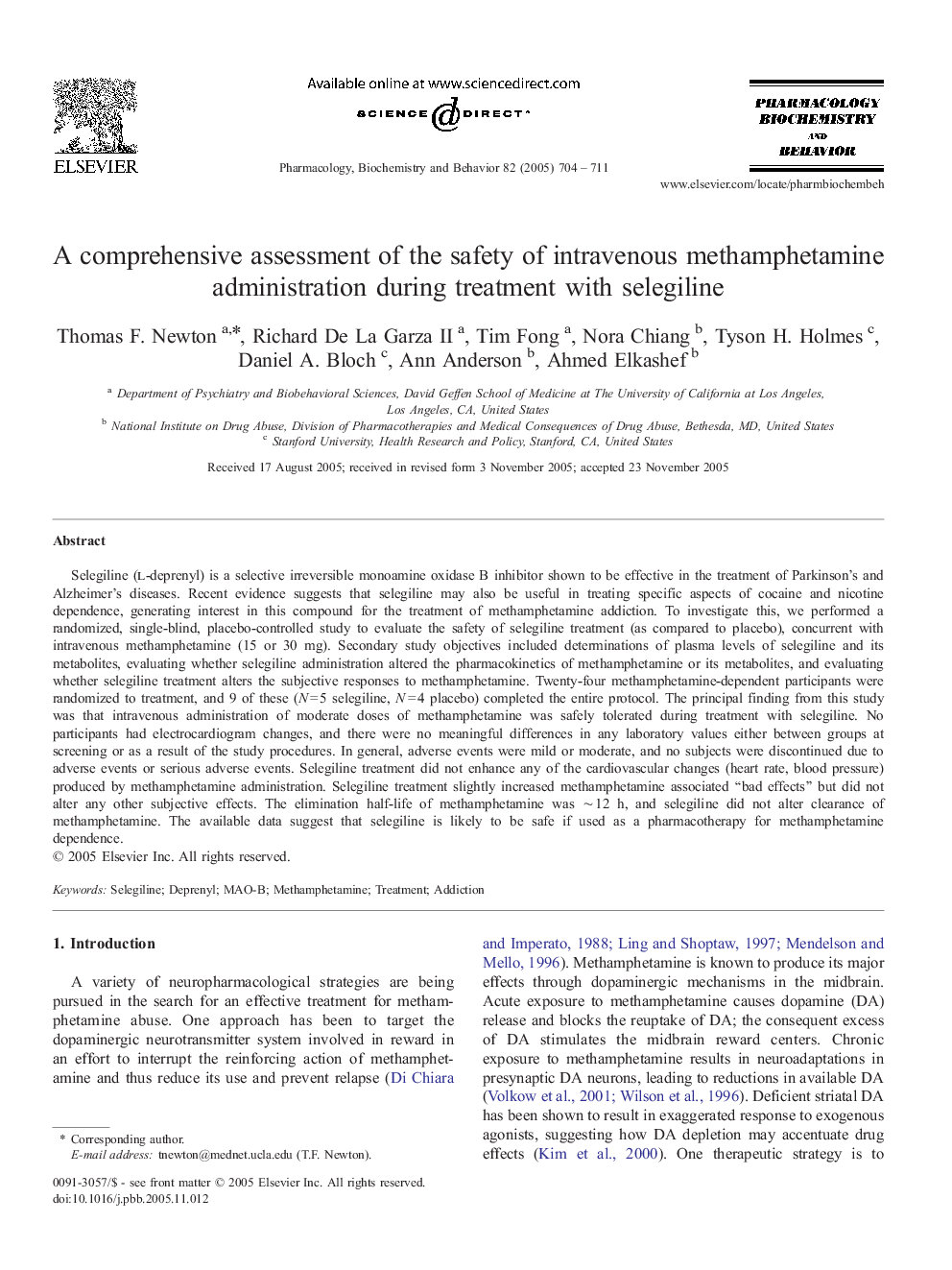| Article ID | Journal | Published Year | Pages | File Type |
|---|---|---|---|---|
| 10838699 | Pharmacology Biochemistry and Behavior | 2005 | 8 Pages |
Abstract
Selegiline (l-deprenyl) is a selective irreversible monoamine oxidase B inhibitor shown to be effective in the treatment of Parkinson's and Alzheimer's diseases. Recent evidence suggests that selegiline may also be useful in treating specific aspects of cocaine and nicotine dependence, generating interest in this compound for the treatment of methamphetamine addiction. To investigate this, we performed a randomized, single-blind, placebo-controlled study to evaluate the safety of selegiline treatment (as compared to placebo), concurrent with intravenous methamphetamine (15 or 30 mg). Secondary study objectives included determinations of plasma levels of selegiline and its metabolites, evaluating whether selegiline administration altered the pharmacokinetics of methamphetamine or its metabolites, and evaluating whether selegiline treatment alters the subjective responses to methamphetamine. Twenty-four methamphetamine-dependent participants were randomized to treatment, and 9 of these (N = 5 selegiline, N = 4 placebo) completed the entire protocol. The principal finding from this study was that intravenous administration of moderate doses of methamphetamine was safely tolerated during treatment with selegiline. No participants had electrocardiogram changes, and there were no meaningful differences in any laboratory values either between groups at screening or as a result of the study procedures. In general, adverse events were mild or moderate, and no subjects were discontinued due to adverse events or serious adverse events. Selegiline treatment did not enhance any of the cardiovascular changes (heart rate, blood pressure) produced by methamphetamine administration. Selegiline treatment slightly increased methamphetamine associated “bad effects” but did not alter any other subjective effects. The elimination half-life of methamphetamine was â¼Â 12 h, and selegiline did not alter clearance of methamphetamine. The available data suggest that selegiline is likely to be safe if used as a pharmacotherapy for methamphetamine dependence.
Related Topics
Life Sciences
Biochemistry, Genetics and Molecular Biology
Biochemistry
Authors
Thomas F. Newton, Richard II, Tim Fong, Nora Chiang, Tyson H. Holmes, Daniel A. Bloch, Ann Anderson, Ahmed Elkashef,
